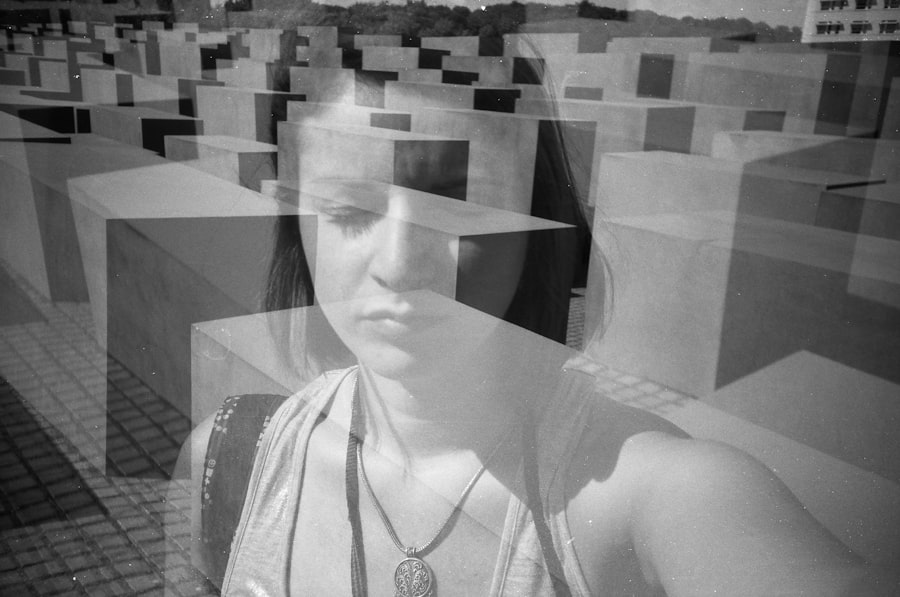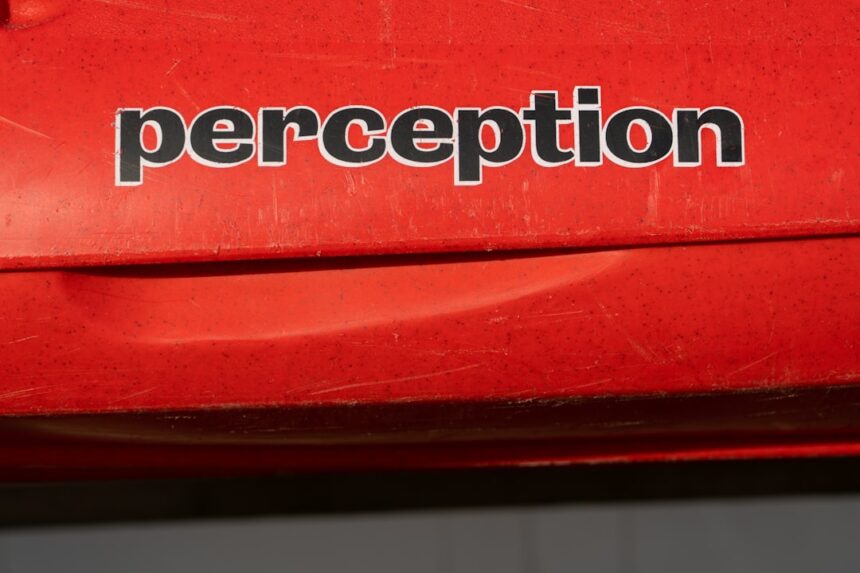Depersonalization and derealization are complex psychological phenomena that can leave you feeling detached from yourself or your surroundings. When you experience depersonalization, you may feel as though you are an observer of your own life, as if you are watching yourself from a distance. This sensation can be disorienting and unsettling, leading to a sense of unreality about your own thoughts, feelings, and actions.
You might find yourself questioning your identity or feeling disconnected from your emotions, as if they belong to someone else. This state can be temporary or chronic, and it often occurs in response to stress or trauma. On the other hand, derealization involves a sense of detachment from the world around you.
You may perceive your environment as strange or dreamlike, where familiar places and people seem distant or distorted. This can create a profound sense of isolation, as if you are living in a bubble separate from reality. Both depersonalization and derealization can occur independently or together, and they are often associated with anxiety disorders, depression, and post-traumatic stress disorder (PTSD).
Understanding these experiences is crucial for recognizing their impact on your life and seeking appropriate support.
Key Takeaways
- Depersonalization is a feeling of being disconnected from oneself, while derealization is a feeling of being disconnected from the world.
- Causes and triggers of depersonalization and derealization can include trauma, stress, anxiety, and substance abuse.
- Symptoms of depersonalization include feeling like an outside observer of one’s thoughts and actions, while symptoms of derealization include feeling like the world is unreal or distorted.
- Depersonalization and derealization can impact daily life and relationships by causing difficulty in forming emotional connections and experiencing joy.
- Treatment options for depersonalization and derealization may include therapy, medication, and stress-reducing activities, and seeking professional help is important for managing these conditions effectively.
Causes and Triggers of Depersonalization and Derealization
The causes of depersonalization and derealization can vary widely from person to person. Often, these experiences are triggered by overwhelming stress or trauma. For instance, if you have faced a significant life event such as the loss of a loved one, a serious accident, or emotional abuse, your mind may resort to depersonalization as a coping mechanism.
This psychological defense mechanism allows you to distance yourself from the pain of the experience, albeit at the cost of feeling disconnected from reality. In addition to trauma, other factors can contribute to the onset of these symptoms. High levels of anxiety or panic attacks can lead to feelings of depersonalization and derealization as your body reacts to perceived threats.
Substance use, particularly hallucinogens or high doses of marijuana, can also trigger these sensations. Furthermore, certain medical conditions, such as epilepsy or migraines, have been linked to episodes of depersonalization and derealization. Recognizing these triggers is essential for understanding your experiences and finding ways to manage them effectively.
Symptoms and Effects of Depersonalization

When you experience depersonalization, the symptoms can manifest in various ways. You might feel as though you are living in a dream or that your body does not belong to you. This disconnection can lead to a sense of numbness or emotional flatness, making it difficult for you to engage with your feelings or express them to others.
You may also find it challenging to concentrate or remember events clearly, which can exacerbate feelings of confusion and frustration. The effects of depersonalization can extend beyond the individual experience; they can significantly impact your daily life. You may struggle with relationships, as friends and family might not understand what you are going through.
This lack of understanding can lead to feelings of isolation and loneliness. Additionally, the inability to connect with your emotions can hinder your ability to make decisions or pursue goals, leaving you feeling stuck in a cycle of detachment. Over time, these symptoms can contribute to a decline in overall mental health, making it essential to address them proactively.
Symptoms and Effects of Derealization
| Symptoms of Derealization | Effects of Derealization |
|---|---|
| Feeling detached from surroundings | Difficulty concentrating |
| Sensory perception changes | Emotional numbness |
| Distorted sense of time | Impaired decision-making |
| Feeling like in a dream | Increased anxiety |
Derealization presents its own set of symptoms that can be equally distressing. You may perceive your surroundings as distorted or unreal, leading to feelings of confusion about what is happening around you. Familiar places may seem foreign, and people may appear as if they are part of a movie rather than real life.
This altered perception can create a sense of fear or anxiety, as you struggle to reconcile your experiences with reality. The effects of derealization can be profound and far-reaching. You might find it difficult to engage fully in conversations or activities because everything feels surreal.
This disconnection can lead to social withdrawal, as you may feel uncomfortable in situations where you cannot control your perception of reality. Over time, these experiences can contribute to feelings of depression or anxiety, creating a cycle that is hard to break. Understanding the symptoms and effects of derealization is crucial for recognizing when you need support and intervention.
Impact on Daily Life and Relationships
The impact of depersonalization and derealization on daily life can be significant.
The sense of detachment can make it difficult to focus on work or school responsibilities, leading to decreased productivity and increased stress.
As you navigate through life feeling disconnected from yourself and your surroundings, it can become increasingly challenging to maintain a sense of normalcy. Relationships often suffer as a result of these experiences. Friends and family may struggle to understand what you are going through, leading to feelings of isolation and frustration.
You might withdraw from social interactions out of fear that others will not comprehend your experiences or that you will not be able to connect with them emotionally. This withdrawal can create a rift between you and your loved ones, further exacerbating feelings of loneliness. It is essential to recognize how these symptoms affect not only your life but also the lives of those around you.
Treatment Options for Depersonalization and Derealization

When it comes to treating depersonalization and derealization, various options are available depending on the severity and underlying causes of your symptoms. Psychotherapy is often considered one of the most effective treatment methods. Cognitive-behavioral therapy (CBT) can help you identify negative thought patterns that contribute to feelings of detachment and work towards reframing those thoughts in a more positive light.
Through therapy, you can develop coping strategies that allow you to manage your symptoms more effectively. In some cases, medication may be prescribed to help alleviate symptoms associated with anxiety or depression that contribute to depersonalization and derealization. Antidepressants or anti-anxiety medications may be beneficial in stabilizing mood and reducing the frequency of episodes.
However, it is essential to consult with a healthcare professional who understands these conditions well before starting any medication regimen. A comprehensive treatment plan tailored to your specific needs can significantly improve your quality of life.
Coping Strategies for Managing Depersonalization and Derealization
In addition to professional treatment options, there are several coping strategies that you can implement in your daily life to manage depersonalization and derealization effectively. Mindfulness practices such as meditation or deep breathing exercises can help ground you in the present moment, reducing feelings of detachment. Engaging in physical activities like yoga or tai chi can also promote body awareness and help reconnect you with your physical self.
Establishing a routine can provide structure and stability in your life, which may help mitigate feelings of disconnection. Incorporating activities that bring you joy or fulfillment into your daily schedule can also serve as a reminder of what makes life meaningful for you. Additionally, journaling about your experiences can provide an outlet for expressing emotions that may feel difficult to articulate verbally.
By actively engaging with your thoughts and feelings, you can foster a greater sense of connection with yourself.
Seeking Professional Help for Depersonalization and Derealization
If you find that depersonalization and derealization are significantly impacting your life, seeking professional help is crucial. A mental health professional who specializes in these conditions can provide valuable insights and support tailored to your unique experiences. They can help you navigate the complexities of these symptoms while offering coping strategies that resonate with you.
It is essential to remember that seeking help is not a sign of weakness but rather an important step towards reclaiming control over your life. By addressing these symptoms head-on with the guidance of a professional, you can work towards understanding their root causes and developing effective strategies for managing them. With time and support, it is possible to regain a sense of connection with yourself and the world around you, allowing for a more fulfilling life experience.
In exploring the complexities of depersonalization and derealization, it’s essential to understand the nuances of these dissociative experiences and how they impact individuals differently. While both conditions can be distressing, the severity often depends on personal circumstances and the underlying causes. For a deeper dive into the psychological aspects and potential coping strategies, you might find the article on com/’>Unplugged Psych insightful.
This resource offers a comprehensive look at various mental health topics, including dissociative disorders, providing valuable information for those seeking to understand or manage these conditions.
LEARN MORE About Depersonalization & Derealization
FAQs
What is depersonalization and derealization?
Depersonalization is a mental health condition where a person feels detached from themselves, as if they are observing themselves from outside their body. Derealization is a similar condition where a person feels detached from their surroundings, as if the world around them is unreal or distorted.
What are the symptoms of depersonalization and derealization?
Symptoms of depersonalization may include feeling like an outside observer of one’s thoughts or body, feeling like one is in a dream, or feeling emotionally numb. Symptoms of derealization may include feeling like the world is foggy or unreal, feeling like objects are changing in shape or size, or feeling like time is distorted.
Is depersonalization or derealization worse?
There is no definitive answer to which is worse, as the experience of these conditions can vary greatly from person to person. Some individuals may find depersonalization more distressing, while others may find derealization more disruptive to their daily life.
How are depersonalization and derealization treated?
Treatment for depersonalization and derealization may include therapy, medication, and lifestyle changes. Cognitive-behavioral therapy (CBT) and mindfulness-based approaches have been shown to be effective in treating these conditions. Medications such as antidepressants or anti-anxiety drugs may also be prescribed in some cases.
Can depersonalization and derealization be cured?
While there is no specific cure for depersonalization and derealization, many individuals find relief from symptoms through treatment and support. With the right combination of therapy, medication, and self-care, it is possible for individuals to manage and reduce the impact of these conditions on their daily lives.




